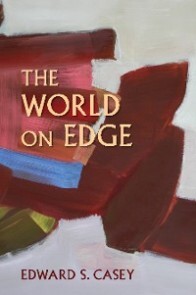From one of continental philosophy's most distinctive voices comes a creative contribution to spatial studies, environmental philosophy, and phenomenology. Edward S. Casey identifies how important edges are to us, not only in terms of how we perceive our world, but in our cognitive, artistic, and sociopolitical attentions to it. We live in a world that is constantly on edge, yet edges as such are rarely explored. Casey systematically describes the major and minor edges that configure the human and other-than-human realms, including our everyday experience. He also explores edges in high- stakes situations, such as those that emerge in natural disasters, moments of political and economic upheaval, and encroaching climate change. Casey's work enables a more lucid understanding of the edge-world that is a necessary part of living in a shared global environment.

